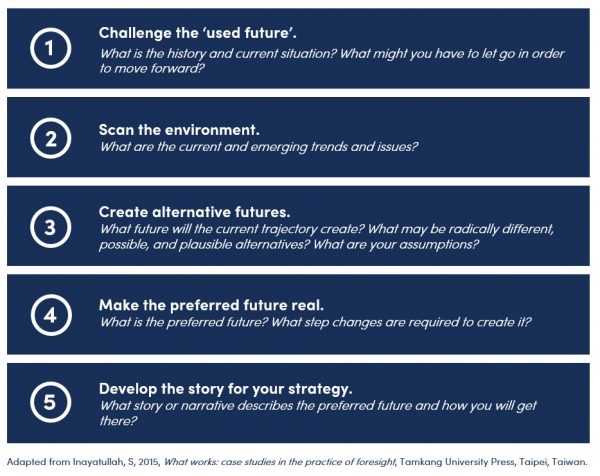If you are looking to refresh or transform your organisation, team or program’s direction and purpose, futures thinking may be the approach you need. As technology, industries, communities, climate and the environment rapidly change around us, government agencies and other organisations risk losing relevance if their strategy and activities are entrenched in the past. Futures thinking challenges your current trajectory and guides you to imagine a range of alternative futures that you may not otherwise have considered through traditional strategy approaches.
Futures thinking is a growing discipline that can be an effective, engaging and creative approach to guide your strategy development process. It is particularly useful for tackling complex problems, which are common in water and environmental management. The main steps in a futures approach are shown below.

While these steps are not dissimilar to traditional strategy approaches, the difference is in the application. A futures approach offers a range of methods to draw on throughout the process that will challenge you, your team and/or your stakeholders to rethink what’s possible, imagine alternative futures, unpack your assumptions, agree on the preferred future, and map a pathway to create it. These methods can be disruptive and even uncomfortable, but in doing so, support a more robust and resilient strategy.
Outcomes from a futures process can be used as the basis for designing a monitoring and evaluation framework and support adaptive management. The outcomes can also be mapped to or feed into other planning and evaluation formats and approaches, such as program logic, investment mapping, cost benefit analysis, or benefits realisation.
The value of a futures approach lies in the process itself as much as the strategy that it informs. It challenges traditional thinking and solutions, and encourages innovative alternatives that allows your organisation, team or program to maintain or grow its relevance and impact in a world that is rapidly evolving and increasingly complex.

